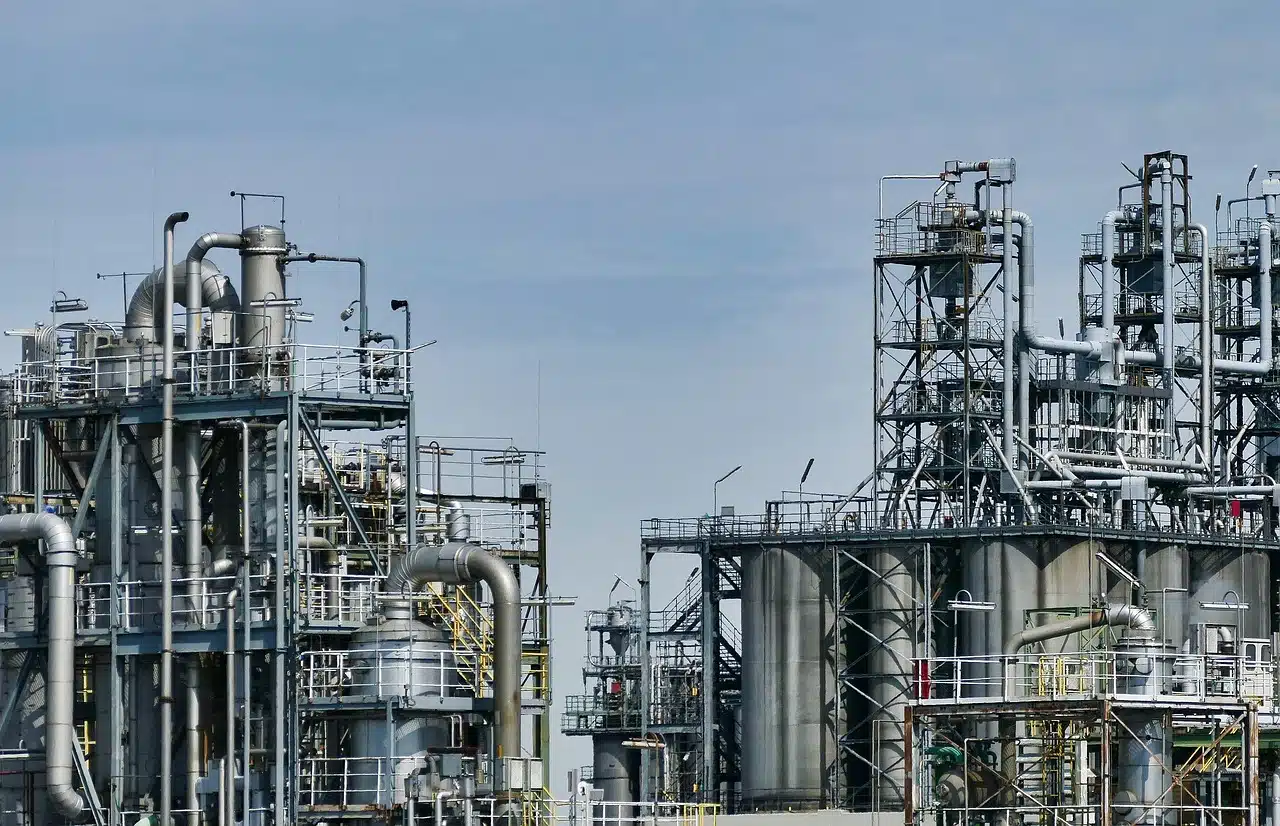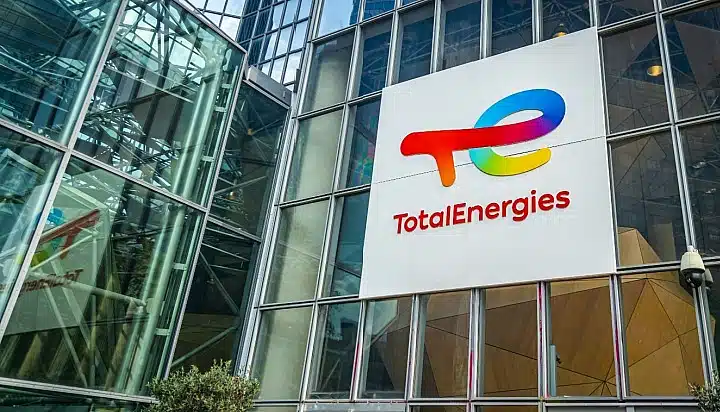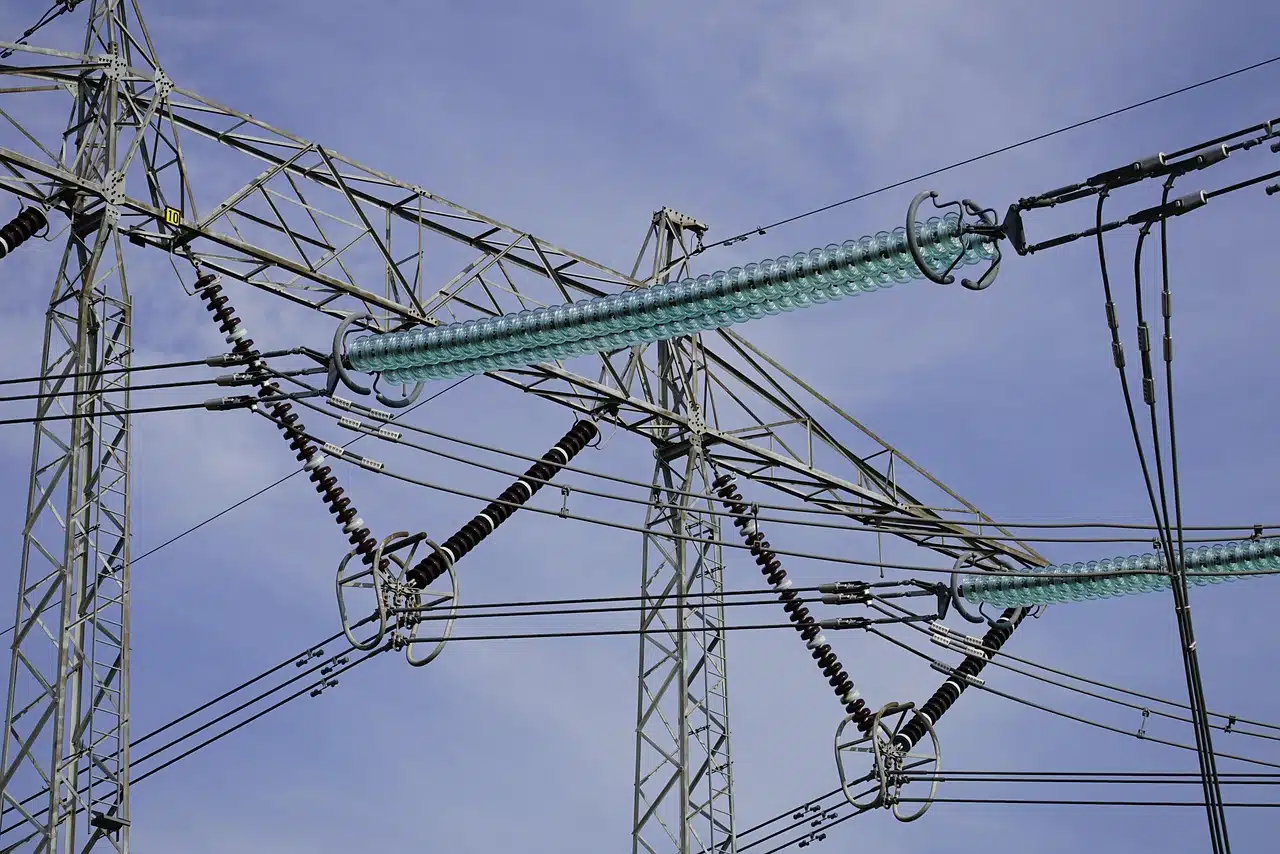Africa has long been a key energy supplier to China, but the escalating trade tensions between China and the United States could further elevate Africa’s role in meeting China’s energy needs.
Nigeria, Africa’s largest oil producer, has a strategic opportunity to position itself as a reliable energy partner for China, capitalizing on the latter’s need for alternative energy suppliers.
With China being the world’s largest developing nation and a major energy consumer, its dependence on imports for about 70% of its energy needs is a crucial factor.
Due to geological challenges and natural depletion, China’s domestic oil production has been steadily declining; not even the matching order given by President Xi to Chinese national oil companies proves to be helpful here.
Experts predict that by 2030, up to 80% of China’s crude oil supply will be imported. To sustain its industrial growth, China secures fossil fuels from multiple regions, including crude oil, natural gas, and coal.
The country’s huge demand and that of India, its ally, contributes significantly to why oil remains the most widely traded energy commodity globally, with millions of barrels of crude and refined products transported daily across the world through networks of pipelines, tankers, storage facilities, and refineries.
Disruptions in these networks—such as those caused by the ongoing trade war between China and the US—can have significant economic consequences for both big oil-importing and oil-exporting countries.
Crude oil is Nigeria’s most lucrative export and for the African largest oil producer to be a destination of choice for Beijing, it must ensure that its oil and gas exports remain competitive in the global market.
The Nigerian economy, which depends heavily on crude oil exports, is particularly vulnerable to shifts in global trade patterns.
According to BudgIT, an independent Nigerian financial watchdog group, revenue from the oil industry accounts for nearly 75% of Nigeria’s budget.
As US President Donald Trump’s policies reshape the global energy markets, China is compelled to explore alternative markets and suppliers, presenting Nigeria with an opportunity to strengthen its oil exports to China.
A brief history of Nigeria-China energy trade
Historically, Nigeria has been an important oil supplier to China. The trade volume between the two nations reached $10 billion in 2012, a significant rise from $384 million in 1998. However, in recent years, China has diversified its oil import sources, leading to a decline in its oil imports from Africa, including Nigeria.
China and Nigeria share strong bilateral trade relations.
While Nigeria mainly exports primary products to China, its imports from China consist largely of manufactured goods. Nigeria remains China’s largest export market in sub-Saharan Africa, while China is one of Nigeria’s largest export markets globally.
In terms of comparative advantage, Nigeria excels in the export of fuels and basic materials, whereas China specializes in manufactured goods, capital goods, consumer goods, intermediate goods, and mechanical and electrical products.
However, Nigeria is more dependent on China’s exports than the latter is on Nigeria’s exports. This has consistently resulted in a trade deficit for Nigeria. Nevertheless, the trade relationship has remained mutually beneficial.
An economic study published in 2023 found that increasing trade cooperation and integration between Nigeria and China would enhance exports for both nations.
China, as the world’s largest importer of crude oil, prioritizes diversifying supply sources to strengthen its energy security.
Nigeria, as Africa’s leading oil producer, has benefited from China’s drive to secure stable energy supplies. Over the decades, both countries have actively traded petroleum products, even though Nigeria is not China’s primary energy supplier.
In 2022, crude oil accounted for 41% of Africa’s exports to China, with Nigeria being one of the major contributors.
However, China maintains a diversified import strategy, sourcing crude oil from Africa, the Middle East, the Americas, and other regions. To become a preferred supplier for China, Nigeria must ensure that its oil and gas exports remain competitive in the global market.
Strengthening energy ties between Nigeria and China
Despite the challenges, Nigeria and China have maintained strong trade relations in multiple sectors, including electronics, solid minerals, construction, and petroleum.
Additionally, Nigeria has been a significant investment destination for China National Offshore Oil Corporation (CNOOC), China’s largest offshore oil and natural gas developer with a strong focus on overseas investments.
CNOOC entered Nigeria in 2005, and by 2006, bilateral trade between both nations had reached $3 billion.
During then-President Hu Jintao’s 2006 visit to Nigeria, China secured four oil drilling licenses and pledged to invest $4 billion in oil and infrastructure projects.
Between 2005 and 2019, China invested approximately $16 billion in Nigeria’s oil and gas industry. The Belt and Road Initiative (BRI), launched by President Xi Jinping in 2014, has further strengthened China-Nigeria energy partnerships.
Recently, the China Development Bank (CDB) disbursed $225 million to finance the construction of a 203-kilometer railway project linking Kano to Abuja.
This project aims to enhance transportation efficiency and improve connectivity within Nigeria.
In 2023, bilateral trade between China and Nigeria reached $22.5 billion, positioning Nigeria as China’s third-largest trading partner in Africa.
Between January and September 2024, China-Nigeria trade volume stood at $15.1 billion, with China’s imports from Nigeria growing by 36% year-on-year.
How Nigeria can expand its petroleum exports to China
Amidst the ongoing trade war initiated by US President Donald Trump, which imposed a 10% tariff on Chinese goods, China retaliated with a 15% tariff on US coal and LNG, with a 10% carve-out for crude oil.
This policy shift indicates that China may seek to reduce US energy imports and increase purchases from alternative suppliers, including Nigeria.
Nigeria can position its crude as a cost-effective alternative to U.S. oil and LNG by offering discounts or flexible payment structures.
This is necessary because Nigeria is not and would not be the only place that China buys energy supplies from. Countries like Angola, Ghana, Mozambique, Equatorial Guinea, and others sell petroleum products to Beijing too.
The ongoing currency swap agreements between China and Nigeria can prove beneficial for bypassing dollar dependency, allowing China to pay in yuan instead.
To strengthen ties, Nigeria should attract more investment from Chinese oil and gas companies in its upstream and midstream sectors, such as refining, pipeline infrastructure, and petrochemicals.
Another strategy is to negotiate long-term agreements with Chinese refiners to ensure a stable and guaranteed export market for not just its crude oil but natural gas too.
Leveraging its vast natural gas reserves, Nigeria can increase LNG exports to China, given that China imported 42% of its natural gas in 2023.
Challenges and considerations
While Nigeria has a clear opportunity to expand its energy exports to China, certain challenges must be addressed.
First, Nigeria must carefully balance its relationships with both the US and China to avoid US sanctions or economic pressures. Also, Nigerian crude faces stiff competition from cheaper oil supplied by Russia, Iran, Venezuela, and other African producers such as Angola and Ghana.
This will require competitive pricing and securing Chinese investments.
Another critical factor is increasing domestic oil production to meet China’s growing demand. Nigeria must invest in oil and gas infrastructure to boost production capacity.
To this end, the country witnessed three out of the four Final Investment Decisions (FIDs) made in Africa’s oil and gas industry in 2024, with total investments surpassing $5 billion.
The report highlighted 10 African oil-producing nations based on upstream capital expenditure (CAPEX) in 2024.
Moreover, OPEC production quotas, currently capping Nigeria’s oil output at 1.5 million barrels per day, could limit Nigeria’s ability to expand exports to China unless adjustments are made.
The US-China trade war presents a unique opportunity for Nigeria to strengthen its foothold in China’s energy market. However, Nigeria must adopt a strategic approach to remain competitive. There is need to secure more investments, improve infrastructure, and negotiate favourable contracts in the Nigerian oil and gas industry.
Also, while crude oil and natural gas remains a valuable export, Nigeria must also consider the future implications of the global shift towards renewable energy, which could impact China’s oil demand going forward.
Balancing immediate economic gains with long-term sustainability will be key for Nigeria’s energy sector in the coming decades.











